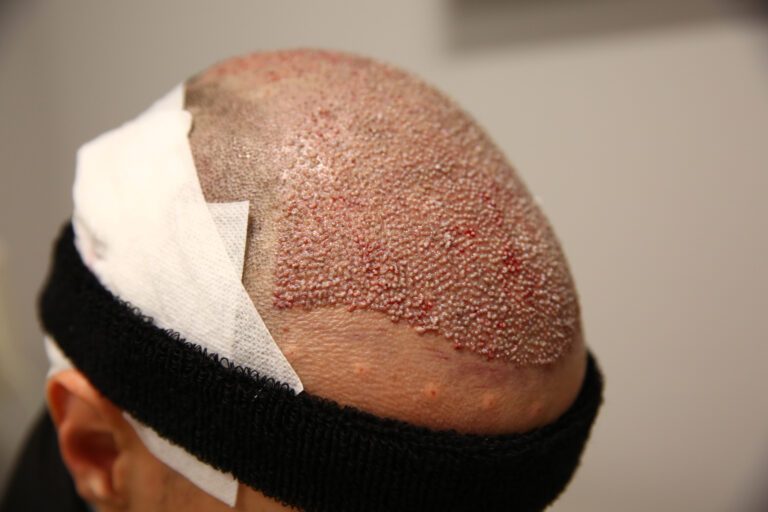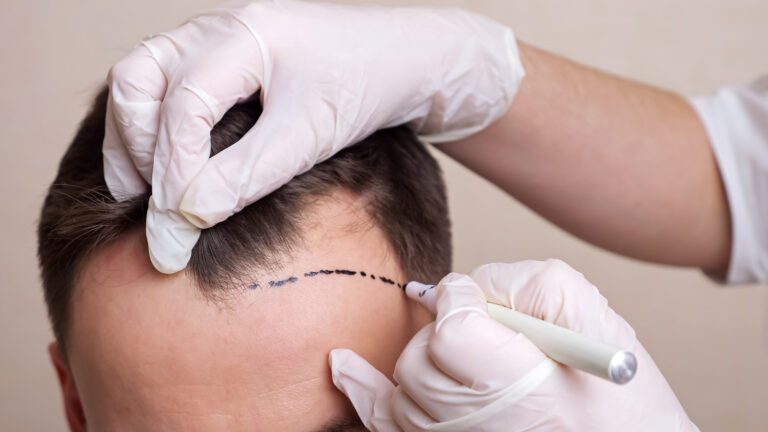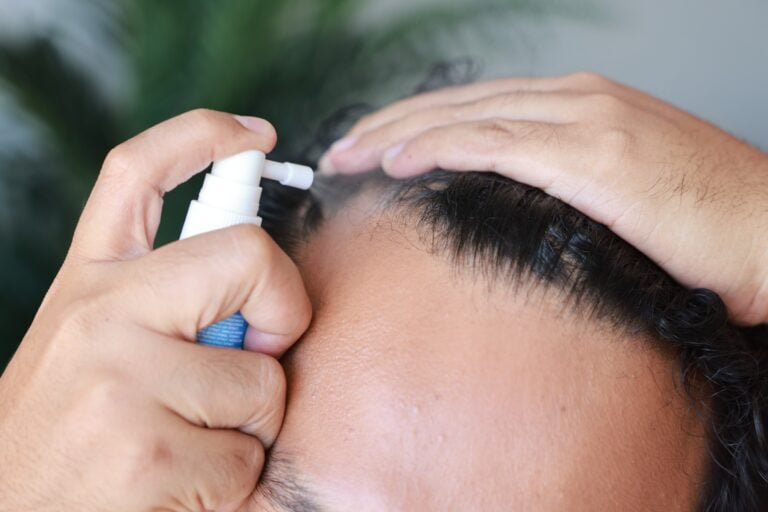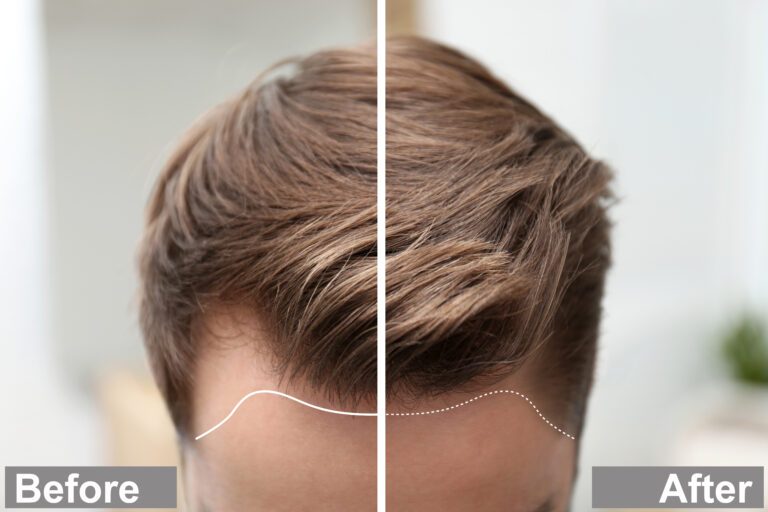Why Shock Hair Loss Happens After A Hair Transplant
Okay, so you just finished your hair restoration surgery and you’re halfway through your scalp’s healing process. Suddenly, the hair on your head starts falling out!
People call this rather distressing phase the hair transplant shock loss shedding. During this period, your scalp will shed some hair follicles around the surgery site.
There are several causes that experts believe to be the cause of this phenomenon. Currently, they’re looking at stress, anesthetics, and medication as the primary culprits.
In this post, we’ll discuss the causes and some preventive measures for hair shock loss after transplant. So, keep reading, and let’s clear some of your questions about shock hair loss.
What Is Shock Hair Loss?
Hair shock loss, also known as post-surgery hair loss, happens a few days or weeks after the procedure. About 5% to 15% of hair transplant patients experience this stage of scalp healing.
Patches of hair from and around the donor area of your scalp will fall off. It can also occur in the recipient spot where the hair grafts are planted.
Patients call this the hair transplant ugly duckling phase because it can be unsightly. But what causes shock hair loss after the hair restoration process?
Causes of Shock Hair Loss
The most common cause of shock hair loss after a transplant is telogen effluvium (TE). It’s a scalp disorder that typically appears when there’s a change in the number of hair follicles.
So, no matter how good your surgeon is in extracting and transplanting, there’s always a chance of TE occurrence. In fact, dermatologists expect and consider shedding as part of the process.
TE affects the growth and rest cycle of your hair. When triggered, it pushes patches of follicles to go into rest mode, called the telogen state, which results in premature hair fall.
There are several factors that prompt the development of telogen effluvium. In a hair restoration procedure, experts believe TE to be caused by anesthetics, medication, and patient stress.
Patient Stress
No matter how mild, hair transplantation is a surgical procedure. It means you’ll be under considerable stress, and your body will have to adjust accordingly.
Research shows that heavy stress is directly related to TE disorder. The abrupt mental and physiological trauma can stop the anagen (growth) stage of the hair cycle.
In addition, a stressful event, such as surgery, can cause your body to cease sending nutrients to the scalp. This case has the same effects as TE which weakens the hair roots.
Anesthetics
Aside from the stress, authorities have also linked the sudden hair loss to the anesthetics used in surgeries, especially those that last several hours.
Both FUT and FUE can go around 4 to 12 hours per session, depending on the degree of baldness. In both surgeries, doctors administer anesthetics at hourly intervals.
Some experts believe that this prolonged exposure to numbing agents causes reduced cell division. The slower cellular division restrains your scalp’s follicle production.
Medication
Certain medications used during and after surgical operations can also contribute to sudden hair fall as well.
If you’re taking beta-blockers, anti-thyroid, and anti-seizures, you’re more at risk of developing telogen effluvium.
Is Shock Hair Loss Permanent?
Seeing your hair suddenly fall out is surely unsettling. After all, the point of having hair restoration surgery is to get your healthy crowning glory back.
Fortunately, shock loss isn’t permanent. In fact, experts consider it a sign that your scalp is in the process of healing—preparing to sprout new hair.
After the shedding process, the lost hair will start to grow again after about 2 to 6 months. It may take over 12 to 18 months to mature into thick, natural-looking hair.
Waiting may sound somewhat frustrating, but it’s a crucial part that ensures natural hair growth.
Are There Ways to Prevent Shock Hair Loss?
Although you can’t entirely avoid shock hair loss after a hair restoration procedure, you can take preventative measures to lessen its effect.
One way to go is to eat nutritious foods along with plant-based foods. They can help alleviate hair fall by providing natural oils to your hair and scalp.
Finally, stress management can do wonders when it comes to hair loss. You should be able to reduce your hair loss with proper sleep and exercise.
The Bottom Line
Hair transplant shedding can be upsetting. After all, no one wants to experience losing hair after going through the trouble of a hair restoration surgery.
Telogen effluvium is the common cause of hair shock loss after transplant. It occurs through triggers like stress, anesthetics, and certain medications.
However, shock loss is a temporary condition, and your hair should regrow within a few months. So, don’t let it get in your hair too much!







